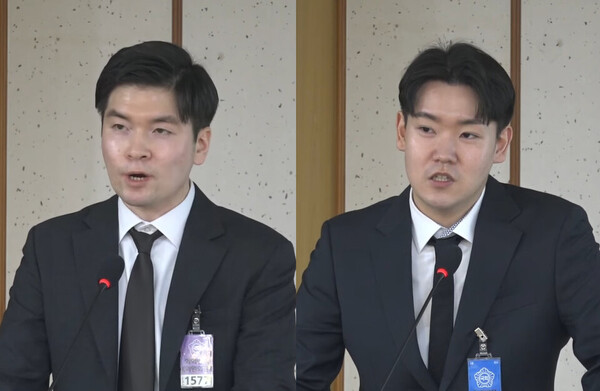
(Credit: Getty Images)
Trainee doctors—who mostly resigned from tertiary hospitals last year in protest against the government’s expansion of medical school seats—have publicly called for reducing the legal workweek from 80 hours to a maximum of 64 hours. They also demand that continuous working hours be capped at 24 hours, down from the current 36-hour limit.
At a “Policy Dialogue for Normalizing Medical Services” on Monday, trainee physicians stated that their working conditions have not improved despite the enactment of the Act on the Improvement of Training Conditions and Status of Medical Residents in August 2024. The discussion was organized by the Korean Medical Association, the Korean Intern Resident Association (KIRA), the National Assembly Health and Welfare Committee, and the National Assembly Legislative Research Service.

Trainee doctor Kim Eun-sik (left), a pediatrician at a hospital in Gyeonggi Province, and Kim Jun-hyung, former chairman of the medical residents' council at Soonchunhyang University Hospital. (Credit: KBR)
Trainee doctor Kim Eun-sik, a pediatrician at a hospital in Gyeonggi Province, shared his experiences of injustice during his family medicine training at one of Seoul’s five largest teaching hospitals.
“Pregnant doctors were forced to work night shifts like other doctors,” Kim said. He recounted the case of a pregnant obstetrics and gynecology resident, who was implicitly pressured to work overnight shifts despite legal protections. “The ob-gyn department claimed that although assigning pregnant doctors to night shifts was illegal, there had never been a case where a pregnant resident was exempted,” Kim said. According to Articles 70(2) and 74(5) of the Labor Standards Act, pregnant women are prohibited from working night shifts or overtime unless they explicitly request it.
Kim also argued that the 80-hour weekly limit for trainee doctors is being abused. According to Article 7 of the Medical Resident Act, a doctor’s workweek must not exceed 80 hours, averaged over four weeks, and continuous shifts cannot exceed 36 hours unless there is an emergency. However, when he was dispatched to the pediatrics department at NHIS Ilsan Hospital during the Covid-19 pandemic in 2022, he was required to work excessive hours.
After contracting Covid-19 and quarantining for a week, the hospital demanded that he compensate for the lost time by working beyond the 80-hour limit.
Another trainee physician highlighted that even when working over 100 hours per week, the training for specialization remained inadequate.
“I worked more than 120 hours a week, but I didn’t receive the practical experience necessary to become a specialist,” said Kim Jun-hyung, former chairman of the medical residents' council at Soonchunhyang University Hospital. “Outpatient care is the most common form of patient-doctor interaction, but very few specialties allow trainees to practice it independently. I trained in internal medicine but never handled an outpatient clinic on my own,” he added.
He also noted inconsistencies in training across different hospitals and specialties. Many specialties lack structured training manuals, forcing residents to rely on brief handover notes, guidance from senior doctors, textbooks, and online searches.
“Despite this chaotic training system, 27,000 specialists have been produced over the past decade,” he said.
Park Dan, chairman of KIRA’s emergency committee, urged revisions to the Medical Resident Act to cap specialists’ working hours at 40 hours per week, in line with the Labor Standards Act, while allowing an additional 24 hours for education. He also suggested allowing an extra four hours for emergencies beyond the proposed 24-hour shift limit. Additionally, he emphasized the need to recognize breaks as training hours and address issues such as low wages, inadequate training, and legal risks.
“The average monthly wage of a trainee doctor is 3.97 million won, which translates to approximately 11,700 won per hour—below the minimum hourly wage,” Park said. “Since the Medical Resident Act does not explicitly include provisions for wage calculations, hospitals set pay according to their own internal policies, resulting in unfair compensation for trainee physicians,” he added.